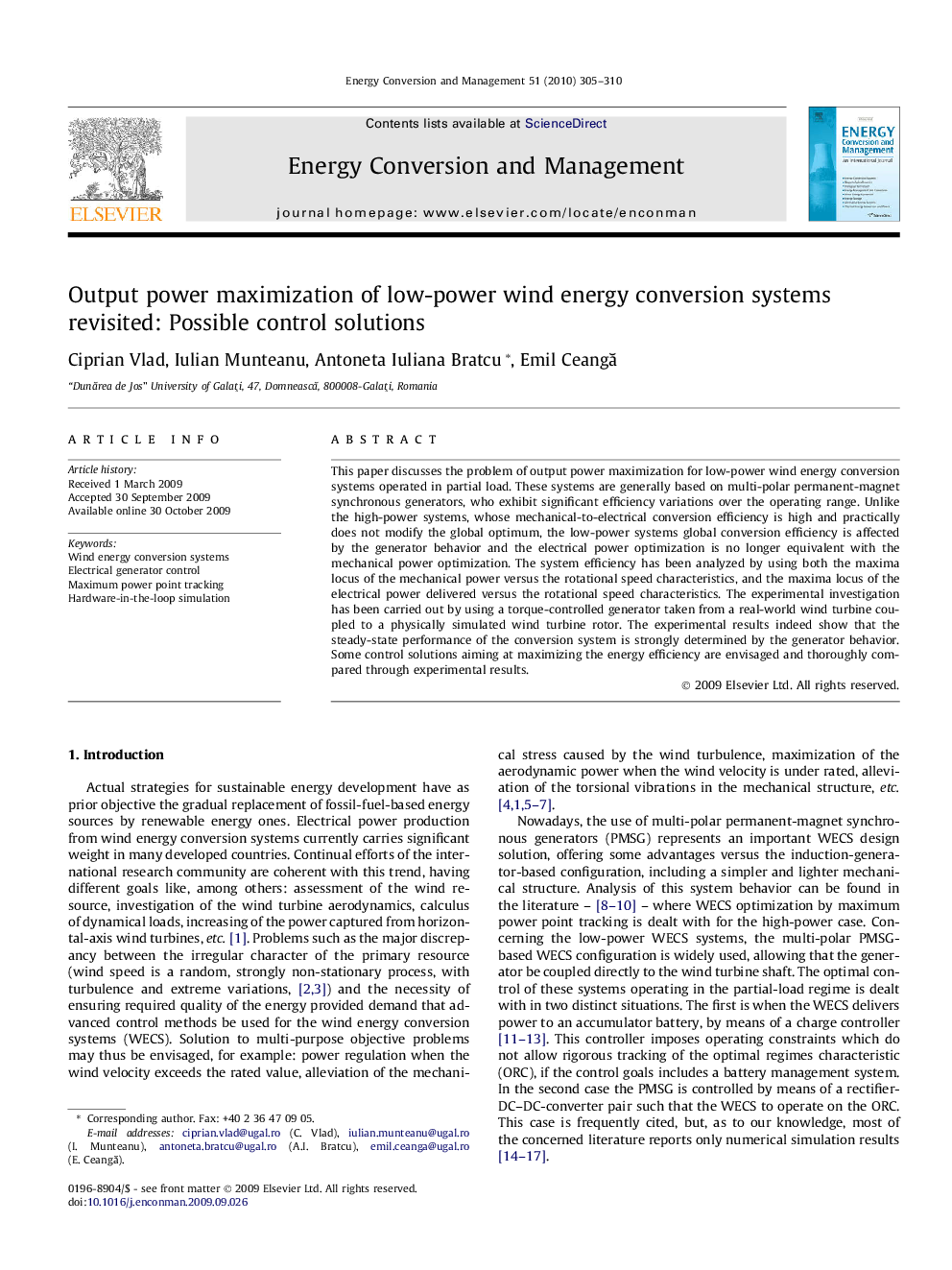| Article ID | Journal | Published Year | Pages | File Type |
|---|---|---|---|---|
| 764948 | Energy Conversion and Management | 2010 | 6 Pages |
This paper discusses the problem of output power maximization for low-power wind energy conversion systems operated in partial load. These systems are generally based on multi-polar permanent-magnet synchronous generators, who exhibit significant efficiency variations over the operating range. Unlike the high-power systems, whose mechanical-to-electrical conversion efficiency is high and practically does not modify the global optimum, the low-power systems global conversion efficiency is affected by the generator behavior and the electrical power optimization is no longer equivalent with the mechanical power optimization. The system efficiency has been analyzed by using both the maxima locus of the mechanical power versus the rotational speed characteristics, and the maxima locus of the electrical power delivered versus the rotational speed characteristics. The experimental investigation has been carried out by using a torque-controlled generator taken from a real-world wind turbine coupled to a physically simulated wind turbine rotor. The experimental results indeed show that the steady-state performance of the conversion system is strongly determined by the generator behavior. Some control solutions aiming at maximizing the energy efficiency are envisaged and thoroughly compared through experimental results.
